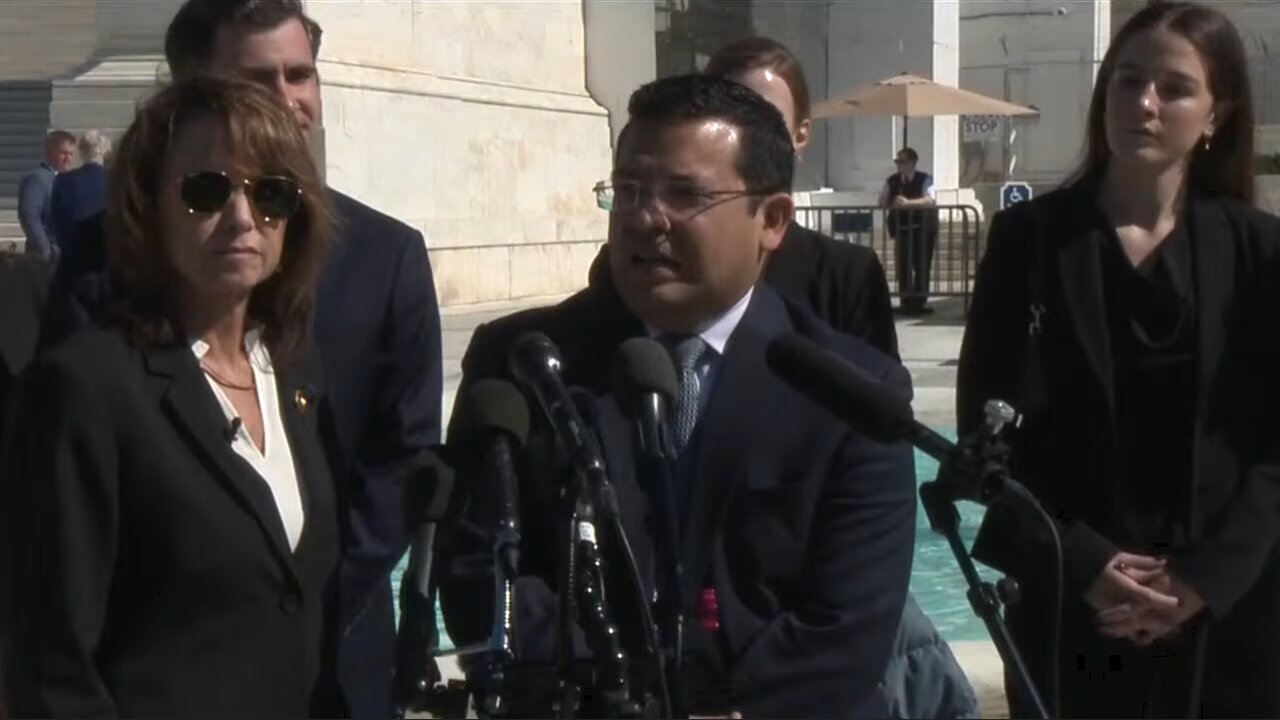Premium Only Content

SCOTUS to decide if Louisiana's new congressional map violates Voting Rights Act
WASHINGTON (TNND) — The Supreme Court appeared inclined to limit the use of the Voting Rights Act to force states to draw electoral districts favorable to minority voters.
The nine justices seemed like they would vote to effectively strike down a Black majority House district in Louisiana because it relied too heavily on race.
The justices heard oral arguments on Wednesday after originally hearing the case in June. The court asked the parties to reargue the case as a constitutional issue.
Last year, Louisiana was required to redraw its maps after the state was sued under the Voting Rights Act to make sure there were two majority-Black districts. The original map had only featured one district, while almost a third of the population of Louisiana is Black.
The nine justices are deciding on whether or not drawing the map to ensure Black districts violates the Fourteenth and Fifteenth amendments of the Constitution. Both of these amendments were used to give equal rights to former slaves after the Civil War.
The Voting Rights Act is a piece of legislation from the civil rights movement, and the challenge today could potentially gut the key provision of the law that prohibits racial discrimination in redistricting.
At first, Louisiana supported the redrawing, but it has now sided with voters who sued to block the new map on constitutional grounds, bringing up the question of whether states can use race when drawing electoral districts. The Trump administration supports Louisiana’s new position on the map.
Just two years ago, the court, by a 5-4 vote, affirmed a ruling that found a likely violation of the Voting Rights Act in a similar case over Alabama’s congressional map. Chief Justice John Roberts and Justice Brett Kavanaugh joined their three more liberal colleagues in the outcome.
In the first arguments in the Louisiana case in March, Roberts sounded skeptical of the second majority-Black district. Roberts described the district as a “snake” that stretches more than 200 miles to link parts of the Shreveport, Alexandria, Lafayette, and Baton Rouge areas.
The court fight over Louisiana’s congressional districts has lasted three years.
-
 LIVE
LIVE
The White House
1 hour agoVP JD Vance Delivers Remarks at 250th Anniversary Celebration for the United States Marine Corps
746 watching -
 14:22
14:22
Exploring With Nug
8 hours agoThe River Exposed a Secret That No One Was Supposed to See!
14.1K1 -
 LIVE
LIVE
Tundra Tactical
3 hours ago🛑{LIVE NOW!!} The Great Tundra Nation Gun Show!!!! Presented By MGS Trade School
1,411 watching -
 23:23
23:23
MYLUNCHBREAK CHANNEL PAGE
9 hours agoThe Sunken Basilica
68.9K4 -
 LIVE
LIVE
GamerGril
3 hours agoShould I Get A Zoob Job 💞Dying Light The Beast💞
171 watching -
 5:00:18
5:00:18
MattMorseTV
7 hours ago $207.50 earned🔴No Kings "protest" TOTAL CHAOS.🔴
293K413 -
 1:28:51
1:28:51
Darkhorse Podcast
5 hours agoCan the internet make you sick? The 297th Evolutionary Lens with Bret Weinstein and Heather Heying
25.5K10 -
 1:39:04
1:39:04
TinyPandaface
4 days agoYour FACE is a Gaming Channel! | Homebody PART 2!
5K -
 1:21:31
1:21:31
Michael Franzese
18 hours agoTrump Derangement Syndrome Is On The Way Out | Live with Michael Franzese
107K101 -
 LIVE
LIVE
ZWOGs
3 hours ago🔴LIVE IN 1440p! - ARC RAIDERS SERVER SLAM - Come Hang Out!
30 watching